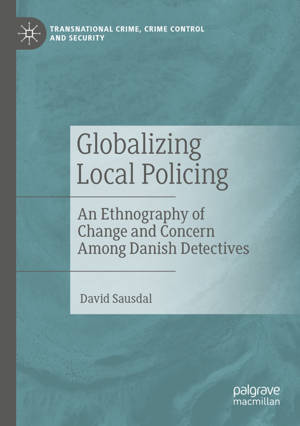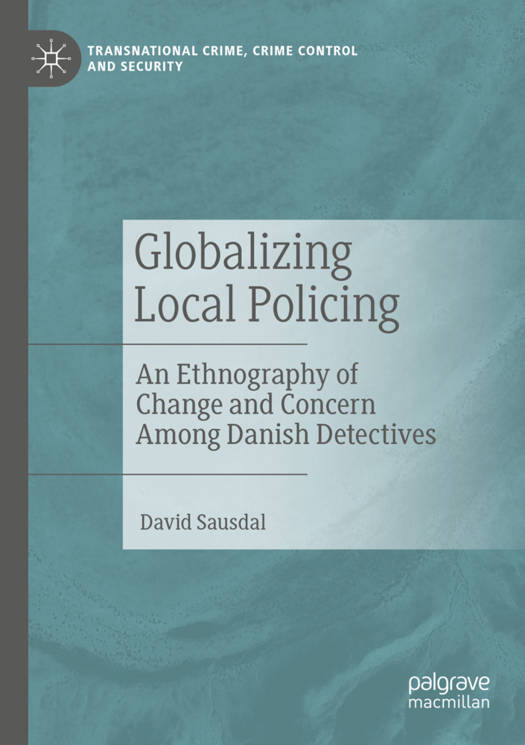
- Retrait gratuit dans votre magasin Club
- 7.000.000 titres dans notre catalogue
- Payer en toute sécurité
- Toujours un magasin près de chez vous
- Retrait gratuit dans votre magasin Club
- 7.000.0000 titres dans notre catalogue
- Payer en toute sécurité
- Toujours un magasin près de chez vous
Globalizing Local Policing
An Ethnography of Change and Concern Among Danish Detectives
David Sausdal
52,95 €
+ 105 points
Format
Description
The book examines 'the globalization of local policing' through an ethnographic study of the Danish Police. Where many studies are looking into how larger inter- or transnational policing bodies and policies are changing the world of policing, few have gauged how local, public police forces are also globalizing. This book provides some unique insights into this under-researched process. Specifically, it describes the daily practices and perceptions of two Danish detective task forces, tasked with the investigation of organized property crimes committed by foreign nationals. In the book, readers get to see how the detectives think and work, including the many efforts they make in attuning their daily work to a more global reality. More so, readers get to see how the detectives fail and the many frustrations and concerns that such changes include. One the one hand, Danish detectives very much understand the need to de-localize and develop their work. On the other hand, they feel that many of these changes are in conflict with what they find to be real and rewarding police work. For people interested in contemporary issues of policing, the book thus points to a puzzling paradox. Globalization might be making for more mobile and even mobilised local forces, more technologically driven and collaborating with international partners. However, these very processes are also making local officers feel more disarmed than ever. Ultimately, the book describes why that is, its consequences, as well as how to imagine a form of global policing more in tune with its local actors.
Spécifications
Parties prenantes
- Auteur(s) :
- Editeur:
Contenu
- Nombre de pages :
- 254
- Langue:
- Anglais
- Collection :
Caractéristiques
- EAN:
- 9783031189210
- Date de parution :
- 26-03-24
- Format:
- Livre broché
- Format numérique:
- Trade paperback (VS)
- Dimensions :
- 148 mm x 210 mm

Les avis
Nous publions uniquement les avis qui respectent les conditions requises. Consultez nos conditions pour les avis.






